MARS is a state-of-the-art research facility that allows testing of feed ingredients, water treatments, and other management practices for aquaculture. The facility consists of three recirculating aquaculture systems (RAS), where environmental parameters can be adjusted for salinity (0-40 ppt) and temperature (5-35°C), depending on the needs of the experiment and species.
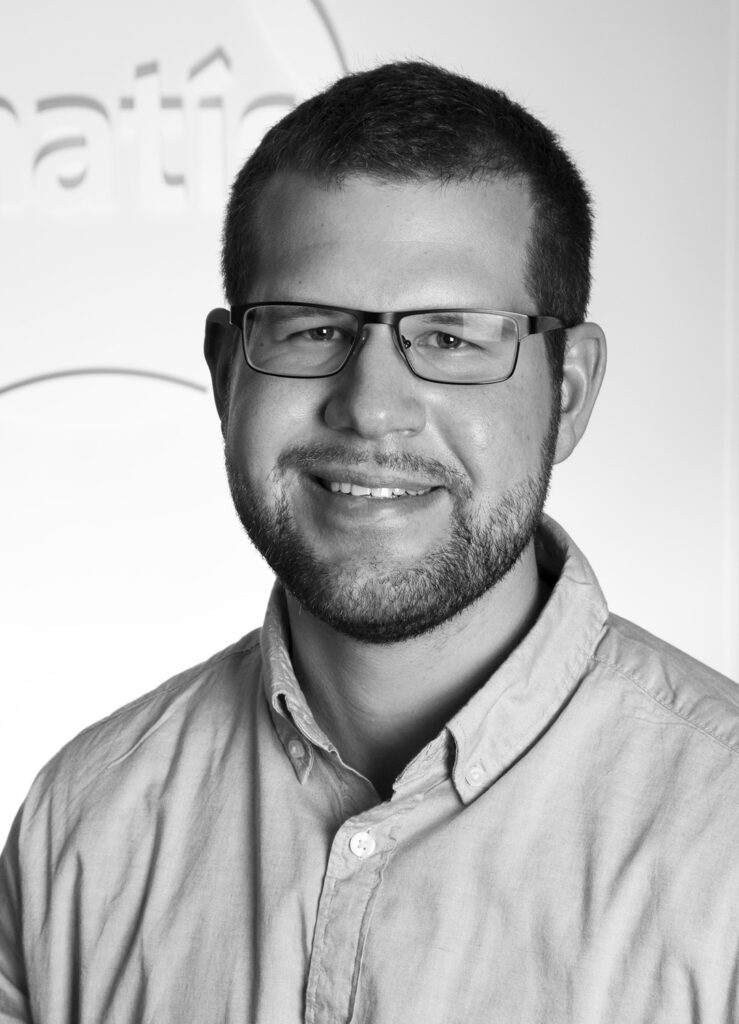
Contact
Sven-Ole Meiske
Researcher
sven-ole@matis.is
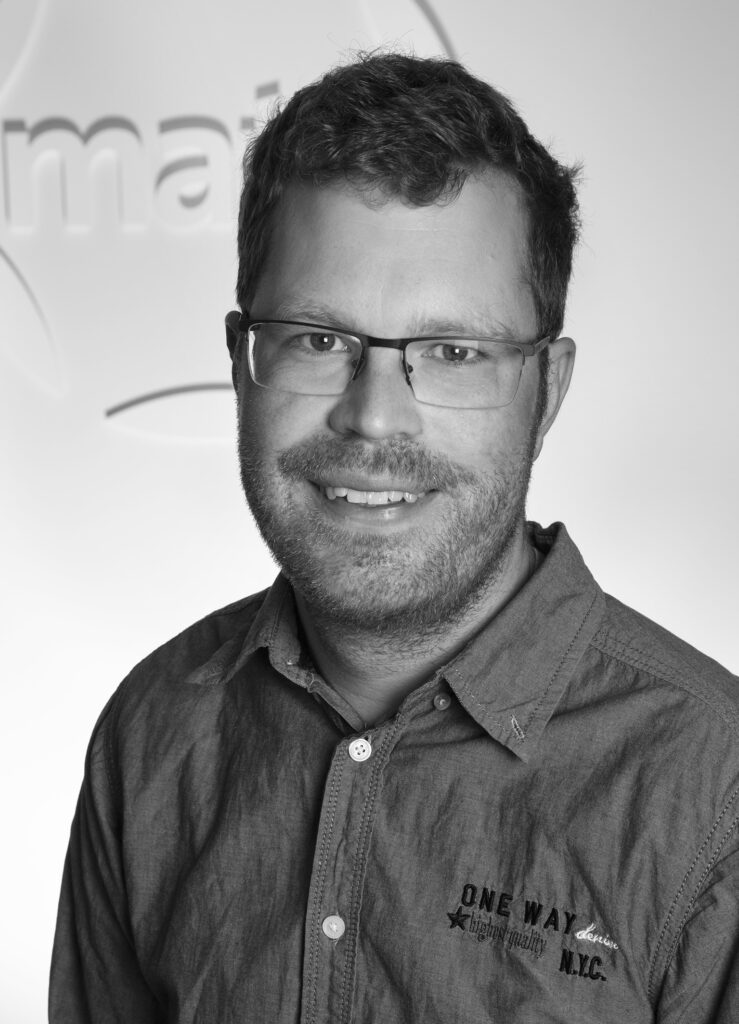
Contact
Georges Lamborelle
Station Manager of MARS
georges@matis.is
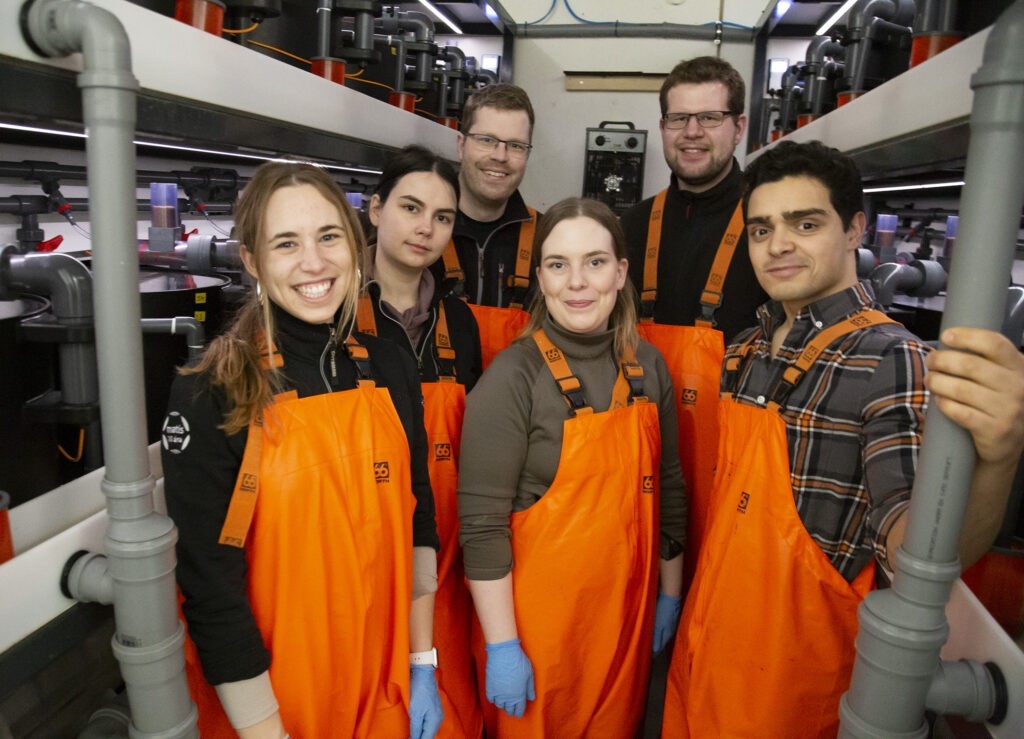
All systems are equipped with an automatic feeding system that can deliver feed to each tank independently. All systems are equipped with a water treatment system which consists of solid waste removal, biofilter, UV light disinfection, protein skimmer with ozone, temperature control, and oxygen control.
The environmental control and closed nature of these systems provides a unique opportunity to work with a wide range of key aquaculture species. In the last 10 years alone trials have been performed successfully with Atlantic salmon, rainbow trout, Arctic char, Nile tilapia, and whiteleg shrimp.
The RAS systems are increasingly important in commercial aquaculture and these facilities also provide the opportunity for research to improve their use.
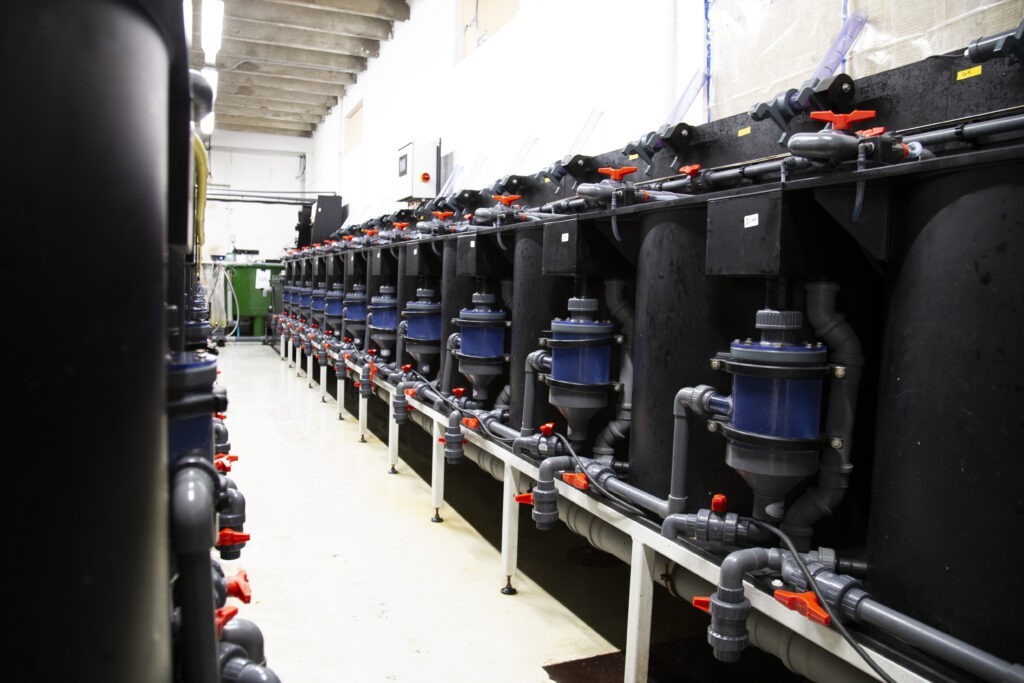
The small system (RAS-200)
The most experienced system at MARS is RAS-1, operating since early 2019. It consists of 36 black tanks with white bottoms, each with a capacity of 200 litres, for a total of 8.5 cubic metres of water in the whole system. The strength of this RAS is its flexibility, as each row can be combined or operated independently, enabling MARS run multiple trials of varying parameters, research methods and species simultaneously. Salinity, temperature, oxygen and nitrogenous wastes can be adjusted effectively to fit the specific needs of any project. This system can support trials with adult shrimp and fish (≤400g) of various species, but is specialised for whiteleg shrimp and salmonids. Each tank has highly programmable automatic feeders and is connected to solid material collectors, making this system ideal for growth trials with accurate feed intake measurements. A variety of other analytical methods including histology, gut microbiome, organ biopsies and more can also be effectively carried out.
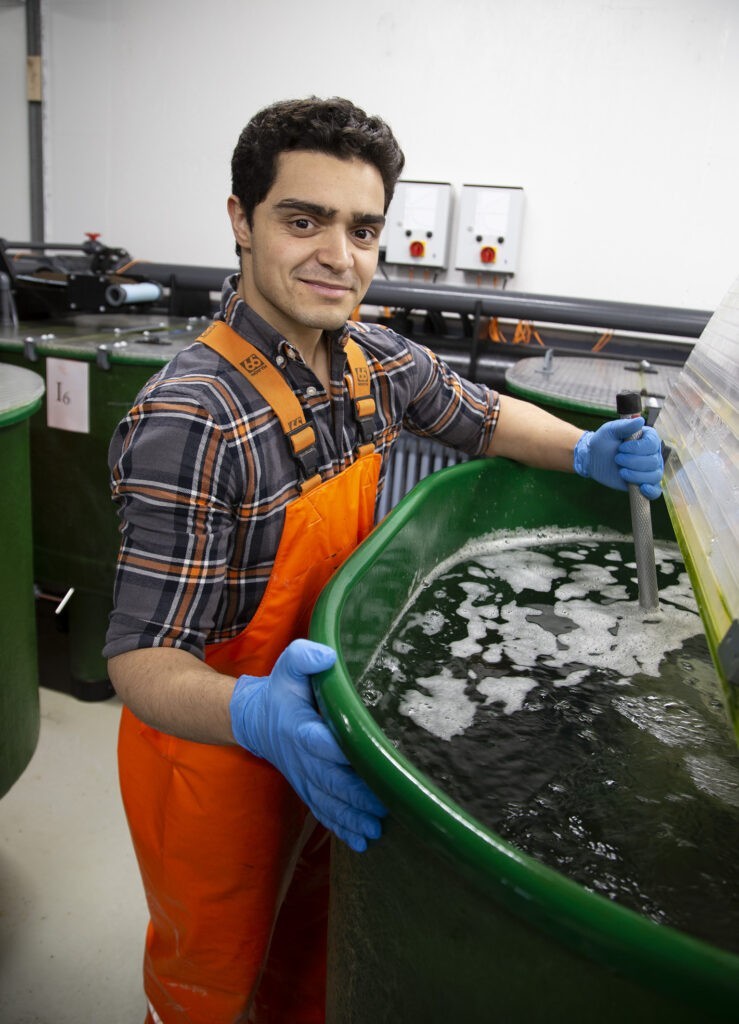
The big system (RAS-600)
RAS-2 consist of 24 all-green tanks, each with a capacity of 600 litres, for a total of 20 cubic metres of water in the whole system. This system is designed to host fish from as small as 40g, all the way up to 2kg, enabling MARS to run trials on fish of widely varying sizes. The temperature and salinity of the system can also be controlled to a high degree here, however, this RAS is typically kept at 33ppt and ~10°C, as it´s ideal for simulating marine environments for large fish. Each tank is also fitted with automatic belt feeders and connected to a solids collection system. These can be used as uneaten feed collectors, allowing for accurate feed intake measurements and thus, RAS-2 is excellent for running growth and digestibility trials among a variety of other experiments.
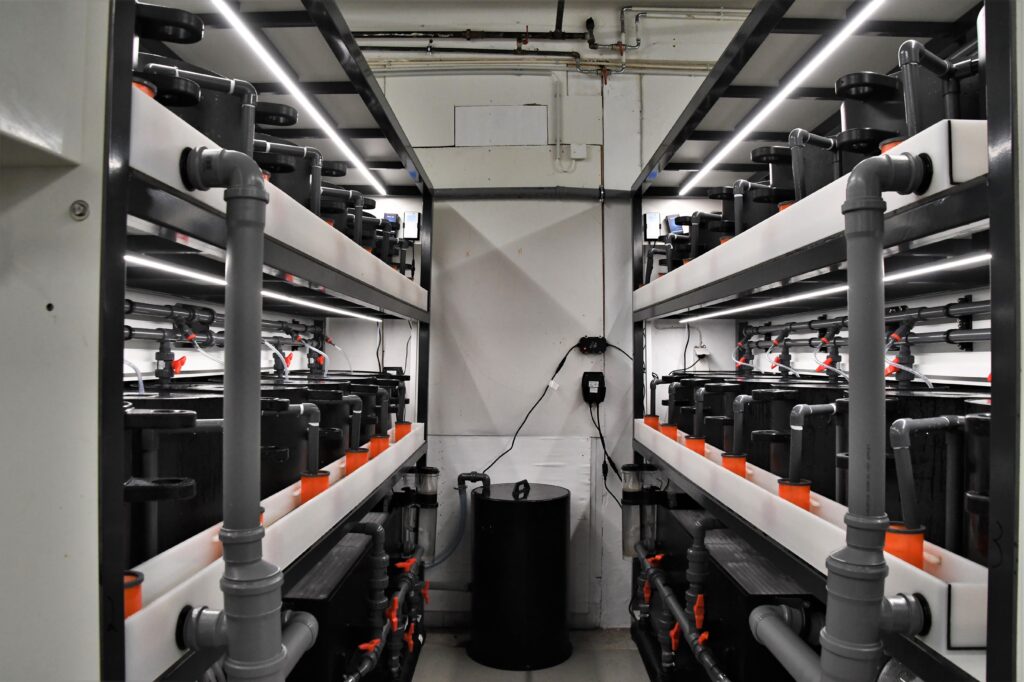
The mini system (RAS-50)
The latest addition to the MARS aquaculture arsenal is RAS-3, which has been in operaton since January 2022. This system consists of 48 black tanks with white bottoms, each with a capacity of 50 litres. These are split into 4 rows of 12 tanks each, which can be combined into 2 units of 24 or 4 units of 12, each containing a total of 1 cubic metre of water. This modular setup supports trial designs that can compare different environmental conditions and feed compositions simultaneously, as temperature, salinity and other parameters can modified efficiently to produce the desired conditions. RAS-3 is designed for shrimp of all sizes and fish trials using specimens of <40g bodyweight from a variety of species. Each tank is also fitted with programmable feeders and solid material collectors, making it perfect for growth trials and a multitude of tissue sampling methods.
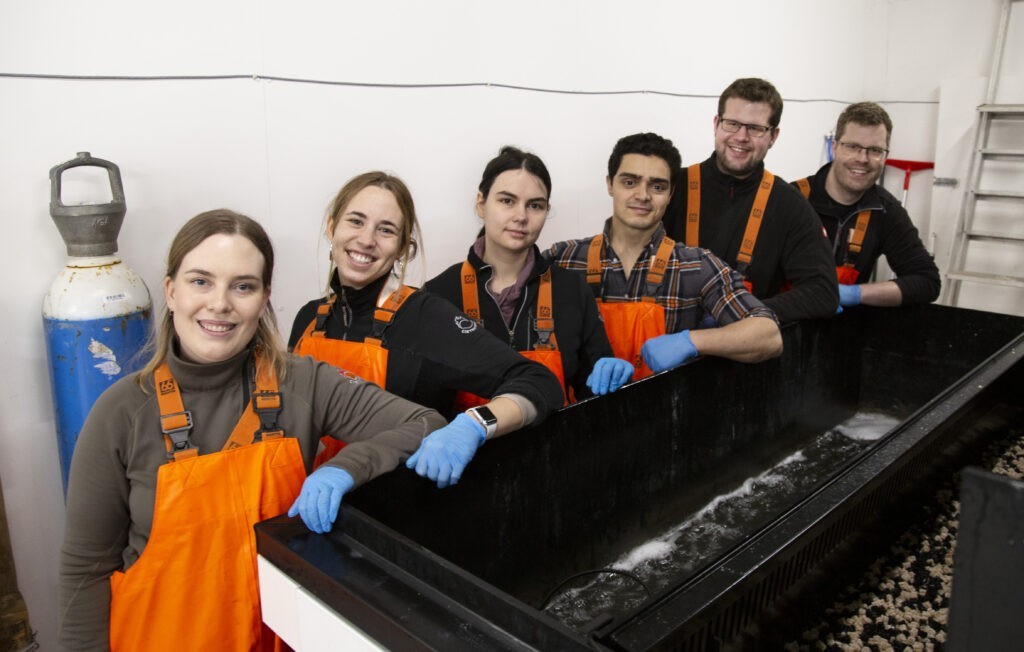
Feed Production
The feed can be produced at small scale, using cold pelleting. The MARS team is very familiar with producing feed using a wide array of ingredients from conventional to alternative and experimental materials. Feed formulation is carried out by Matís using a modern feed optimization software with collaborating experts. The feed can be produced at small scale, using cold pelleting, allowing for feed production of up to 10 kg per feed. Feed can also be extruded and produced in higher volumes through selected partner institutes.
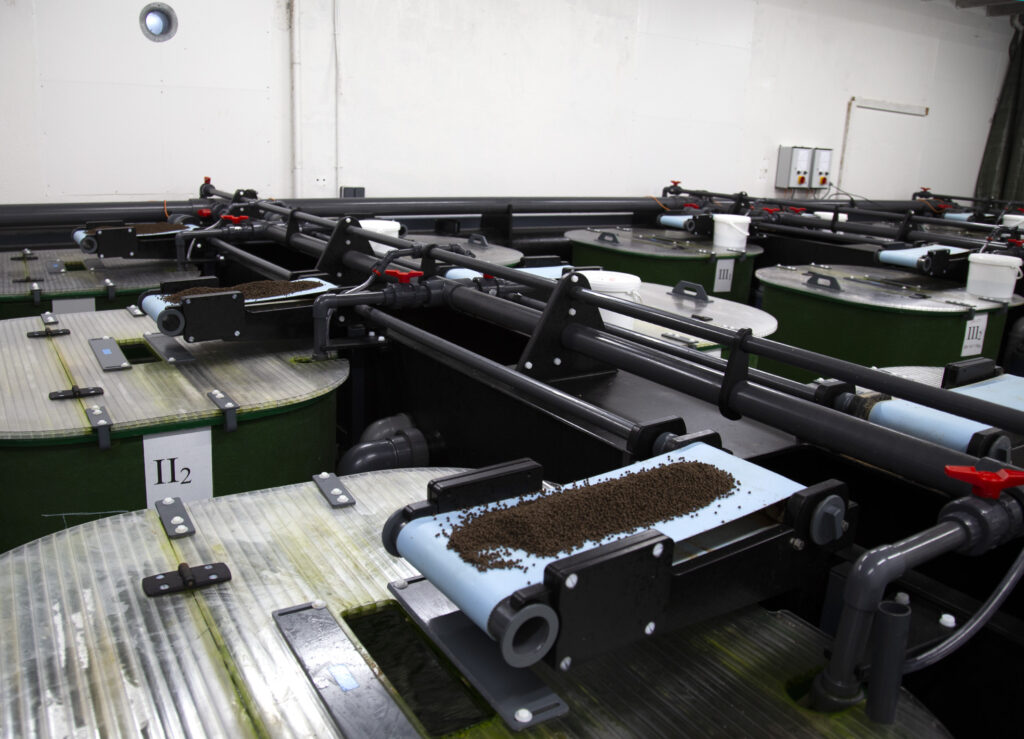
Analytical Capacities
Matís has in-house lab facilities, however, for specific analyses we are working with our partner laboratories to provide our clients with the full range of analytical possibilities.
Based on its long experience as the centre for food analyses in Iceland, Matís provides high-class sensory analyses of fish and shrimp. These range from chemical/physical tests of organoleptic parameters (e.g. pigmentation and texture) to consumer preference and acceptance studies. The microbiological laboratory at Matís has ample experience in microbial analysis including the characterisation of fish and shrimp gut microbiomes, as well as water analyses from the MARS RAS systems. This combination of analytical tools and recirculating aquaculture systems means that we can meet the needs of most aquaculture research studies.
